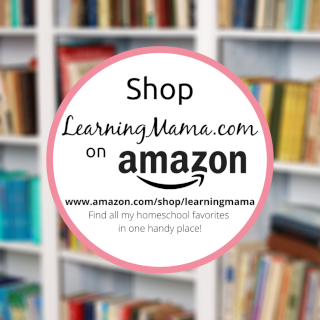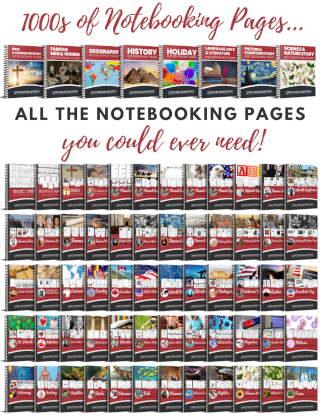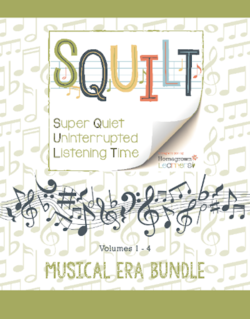Inside: The 5 Bible study tools you need to study the Bible for yourself
Mamas, if there’s one thing you need to be serious about when it comes to your own self-care and personal development, it’s making sure you become a student of God’s word. As mothers, especially those who’ve taken on the immense responsibility of educating our children ourselves, we need to realize that we can’t give what we don’t have.
In a culture that is hostile to faith, and Christianity in particular, we need Bible literacy more than ever. And before we can teach our children how to interact with the culture, how to be discerning, we need to know God’s word and know it well.
Any parent can tell you that kids ask a lot of questions. The older they get, the harder those questions can become. And the questions that today’s kids are asking? They’re so much harder than the questions of previous generations. Are we ready to answer?
Related Reading: Bible Study for Busy Moms
Topical devotionals and books that combine a Bible verse with an inspirational verse may be sufficient for a quick and easy pick-me-up — but when it comes to building a deep relationship with and ownership of the text, they will always be insufficient. What we need is to build Bible literacy.

This post contains affiliate links. Please see my Disclosure Policy for details
5 Essential Tools for Personal Bible Study
These tools are the must-have resources you’ll need in your quest to build your Bible literacy and understanding of God’s word. You don’t need a full library of resources or the latest and greatest prepared and marketed Bible studies. A few simple bible study tools will get you started and take you a long way.
1. Bible
All right, this one is obvious, right? But hear me out! What you really need is a Bible that you can mark up. Your regular, gold leaf paged, leather Bible isn’t the best choice here for a couple of reasons. First of all, you’re probably hesitant to mess up the pages. And those pages are way to thin to handle ink and highlighting without bleeding through. You also need MORE ROOM for writing than most Bibles provide. So save your treasured leather Bible for taking to church or sitting on your bedside table and get yourself a journaling Bible with wide margins, or better yet, print yourself the passage you’re studying in double spaced, wide-margin format from an online Bible. My absolute favourite though, are the ESV Illuminated Scripture Journals which are so pretty and have a full blank page aside every page of text. They’re perfect!
2. Bible Dictionary
Using a Bible Dictionary (Vine’s is popular), or even a regular English dictionary is crucial to making sure you understand what you are reading. It may seem obvious to you to look up unfamiliar words in the dictionary (I’m constantly telling my kids to do this!) but your understanding of a passage can greatly increase by looking up the familiar ones too.
Don’t assume that you understand every word you’re reading! Make note of the definitions by jotting them down on your marked-up Bible pages.
3. Concordance
A concordance has a lot to offer as you go deep in your personal Bible study. Use it to look up the original Greek, Aramaic or Hebrew words used. You’ll find that not every time a particular English word is used it was translated from the same original word.
A concordance will also help you find other passages in the Bible where the same word is used. If you have a study Bible, your cross-references will help with this too, but a concordance will show you every single instance that same word occurs in the original language.
Not sure how to use a concordance? Here’s a helpful video from Zondervan.
4. Bible Atlas
A Bible Atlas is a recent addition to my personal Bible Study tool arsenal. After seeing over the years how world Atlases, historical maps, and mapwork have enriched our homeschool History studies, I’m surprised it took me so long!
I thought that a Bible Atlas would help me locate the places referenced in the text, understand the distances between locations, and show the political borders involved. I was pleasantly surprised to find that it offered so much more than that!
The first thing I noticed when I took a peek at The Basic Bible Atlas (which I received from the publisher for review) is that there is actually more text in the book than maps! Besides colourful maps and many illustrations, it’s an introduction to how places play a role in the story of the Bible.
5. Commentary
While a good Bible commentary is an important tool for your personal study of the Bible, I’ve listed it last because it should be the last resource you use in your study.
It’s tempting to reach for your study Bible’s notes or commentary when you find something you don’t understand. But there is value in wrestling with an idea or question and allowing yourself to stretch to try to discover the answer yourself.
Start with the Bible itself. Read the passage that has you hung up repeatedly. Read the chapter and book in its entirety for context. Check different translations. Use your dictionary to define terms. Look-up cross-references. Pray. Then, after you’ve put in the work, check out the thoughts of trusted experts.
There are two types of commentaries: book-specific commentaries and whole Bible volumes. A good plan is to have a good, whole Bible commentary and then collect the book specific volumes as you go.
I’m not going to recommend a commentary though because your choice is going to depend on your own doctrinal bents. I have had this one for years and am collecting these.

Bonus Bible Study Items:
Treat yourself with these and make your study time a more special experience — you won’t find yourself willing to skip it!
- A beautiful journal to take notes and make outlines, paraphrase passages, and write down any questions you have.
- A set of colourful pens and highlighters that you love to mark up your Bible. Use them to colour code if that’s your thing, if not, just enjoy the look and feel of writing with something a little more special than you normally use for jotting down the grocery list. I love these ones.
- A hot beverage of choice. I like to have my very favourite tea in the morning when I dig into the word, helps me get out of bed knowing I’m going to have my Chai!
- A comfy spot. I don’t have a desk for spreading out my work, nor do I have a space I could dedicate to this, but I do choose to use the same comfy spot in my living room every day and spread out my books on my lap. My book basket is within reach and is stocked with pens, post-its, and of course my beloved book darts.




